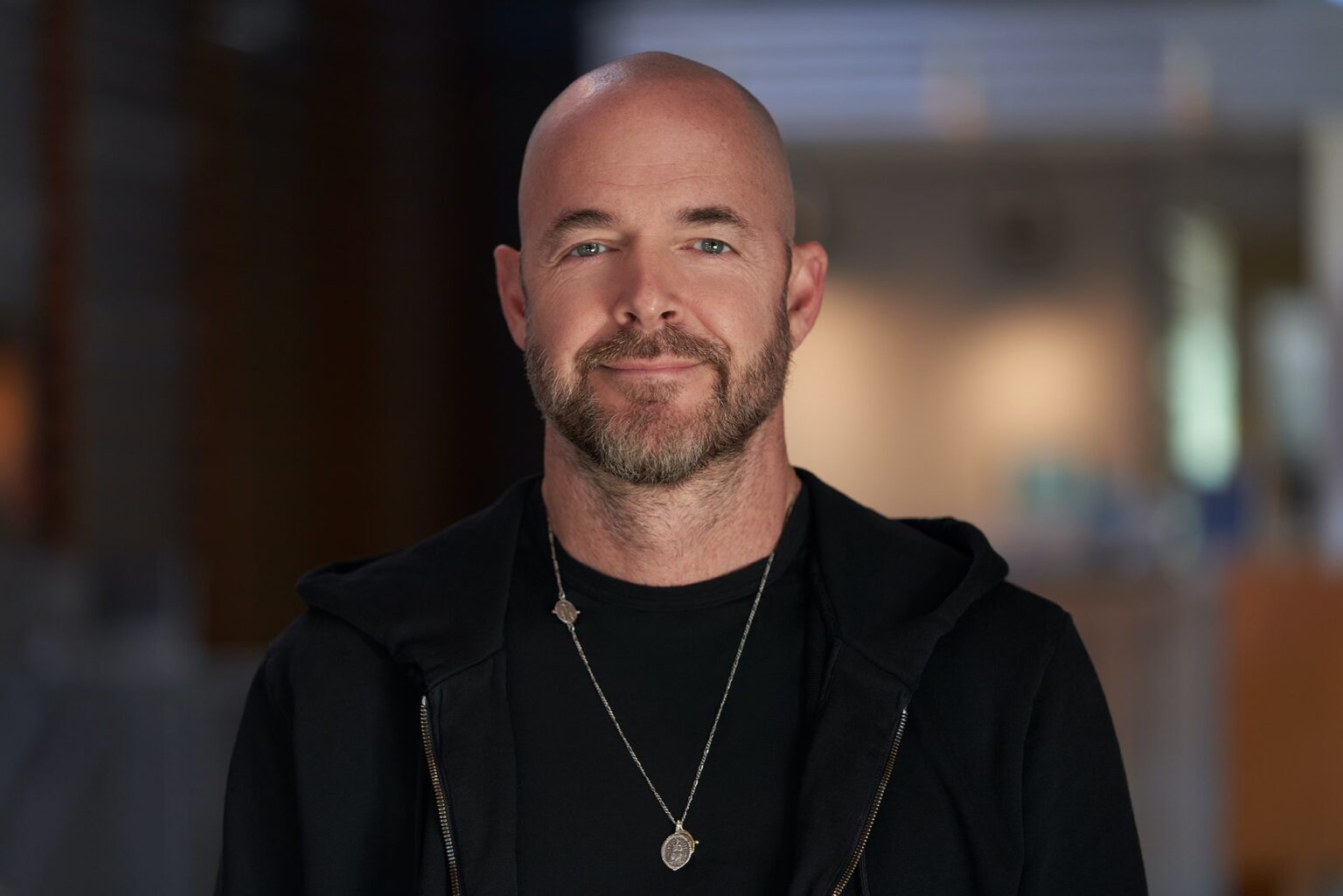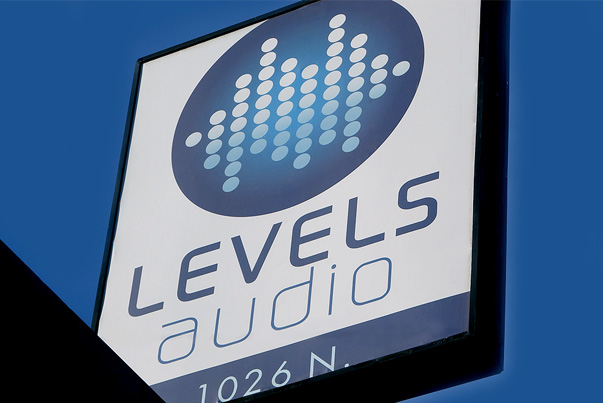
From sound to screen: Meet Levels Audio CEO Brian Riordan
Great audio makes all the difference in film projects. From dialogue to score to sound effects, audio quality can make or break a film or show. Brian Riordan, the founder & CEO of Levels Audio, knows all about taking a project to the next level with incredible audio. His company has spent years building a team that knows the ins & outs of all things sound design.
Currently Levels Audio is working with NBC’s Peacock on the show True Story with Ed and Randall. On top of that work, Riordan is transforming the industry with his nonprofit Hollywood Compassion Coalition. We got to speak with Riordan about his company and the work he’s doing in Hollywood, and trust us when we say this is an interview you’ll want to check out.

When did you first know you wanted to be a musician?
I began piano lessons at around five years old. When I picked up my first guitar about four years later, I immediately knew this was it, this was my instrument, this is what I was to be.
Who are some of your favorite musicians?
I listen to a very wide range of music. Miles Davis, Billy Joel, The Beatles, Zeppelin, Radiohead, Tom Petty, The Cure, The Clash, Arcade Fire, The Stones, LCD Soundsystem, Leon Bridges are just a few that come to mind…
How did you get involved in audio production?
I was always into technology and music. I learned MIDI when it first came out. I worked in sales at a music store in Boston and would collect manufacturer points that I could redeem for equipment. I ended up building a pretty great home studio that I would record/produce myself and other local artists.
When I moved to LA in the mid 90’s I got into audio post for animation, commercials, interactive games, TV and Film.
Can you tell us about why you went off on your own and started Levels Audio?
I have always loved the business and sales side of things. I needed to have that creative and technical outlet but also wanted to do the business side. I worked for several studios and learned a lot about what they did right and what they did wrong. Starting my own facility was my answer to that.
What was your biggest challenge while getting the company off the ground, and how did you overcome that?
I started the company a year before the SAG strike hit. 95% of my business at that time was commercials and the strike literally forced that industry to a grinding halt. I had to quickly pivot and focus my business on longer form content and music related projects. I focused on manually tuning vocals and remixing artists for broadcasts. This led me to mixing countless award shows, concerts, etc. and eventually helped me land American Idol.

What’s been the company’s biggest success so far?
I would say our biggest success is building and retaining the best team possible. That to me is far more important than anything and I am most proud of that.
How would you describe what your company does to a non-post-production person?
We work with every sound element on a TV show or film. We take all of the audio tracks that microphones recorded on location and clean them up, edit them and then mix them along with sound effects and music that we design. We are the last stop on the bus before the project gets released to the public.
What do you love most about working in sound production?
I love sound and all things sound related. It’s in my blood. I love hearing what something should sound like in my mind and then figuring out how to actually get it there. I also love the people. I am surrounded by amazing, fun, smart, driven, talented people.
How did you come to be involved in Peacocks True Story with Ed and Randall?
I have been friends with Tracey Baird, the Executive Producer, for decades. We have done hundreds of hours of television together including Flight of the Conchords for HBO.
What has been your favorite part about working on the show?
I love the lightheartedness of the show. It’s fun and funny and also very relatable.
What do you hope audiences take away from watching the series?
I hope that audiences find that watching this show is uplifting and a nice, fun escape from daily life stresses and anxieties.

True Story dovetails nicely with the work the Hollywood Compassion Coalition does. How did you first come up with the idea for the HCC?
While continuing to focus on growing my business, I had been seeking a more soul-fulfilling purpose. This came into focus through the combination of daily meditation practice, inspiring conversations with like-minded people, and ultimately, a life-changing trip to India where I spent a week in the company of His Holiness, the 14th Dalai Lama. There, I saw my purpose with complete clarity – to take my 25 years of industry experience and personal network of Hollywood professionals and combine them with Social Scientists and Contemplative Masters to create a powerful synergy in an effort to make a positive and lasting impact on the world.
Do you think the profit motive leads to Hollywood producing less-than-compassionate content?
I do. Often times, it seems that we are in a time where the darker a show or film is the more money it makes. But I also believe that we can work to flip that model around. If more positive, uplifting content would attract A-list directors, writers, producers and actors, it would also attain a much higher level of financing, I believe more people would watch it and it would therefore be equally successful. Peacock’s True Stories with Ed and Randall as well as Ted Lasso are great, current examples of this.
Can you tell us about the work the HCC is currently doing?
We are currently building a collective of industry thought leaders and starting a lot of dialogs. It all starts by asking questions and searching for answers. We have an amazing team looking at existing scientific data as well as launching our own studies around the social and neurological impacts of content with our focus being on compassion and how to lift the world through this art form.
What are some of the changes you’d like to see come to Hollywood and to the ways people create content on a broader scale?
I’d like to see more intentionality in general. I’d like the filmmaking community to understand the power that we hold and the ability we have to really move the needle on such a global level. Technology is advancing far greater and faster than the rate at which human consciousness is evolving. This is deeply concerning and should be for all of us.
How does your work and mission with the HCC impact the work that Levels Audio is doing?
The two entities are somewhat siloed. Levels Audio gets hired to make projects sound good. We don’t get too far into the judgment of this content. However, there have been times I have turned down jobs because they are just way too far outside of alignment of my beliefs. It is a treat when we get to work on inspiring, meaningful content, like the documentary feature film on The Dalai Lama, or an upcoming series with Bréne Brown, etc.
What’s your five year plan?
My five-year plan is to continue to grow my post production facility, expand our list of services, expand our locations, and further capture the national and global markets. While doing this we will be growing HCC and my intention is that HCC will become my primary focus sometime in the future. But at this time, I truly love splitting my time and energy up between the two.
Last question here. You’re spending the rest of your life on a desert island, but you get five albums. What are you bringing?
The Stranger – Billy Joel
Kind of Blue – Miles Davis
2001 – Dr. Dre
Wildflowers – Tom Petty
Disintegration – The Cure
—
If you loved what Brian Riordan had to say, keep up with Levels Audio and the Hollywood Compassion Coalition online.






